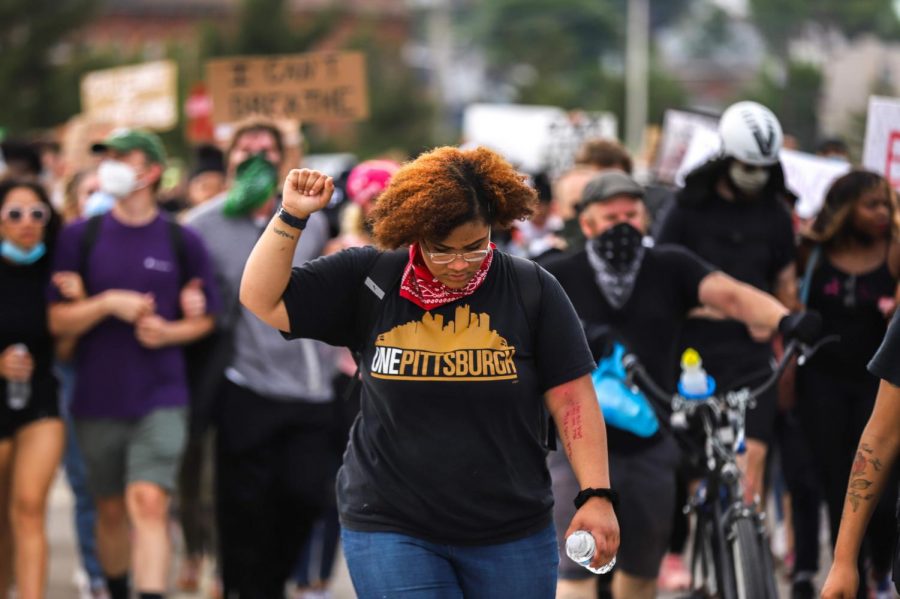Letter to the editor | Africana Studies as a resource for Black studies courses on campus
Protesters march across the Birmingham Bridge during a protest on June 4.
June 16, 2020
As the chair of the Department of Africana Studies and a Black woman and mother myself, I cried and raged at the public killing of George Floyd. His tragic death has galvanized a nation and the world, as the names of Breonna Taylor, Ahmaud Arbery, Antwon Rose II and many other Black men, women and children have been added to cries for justice. Their stories demonstrate the work that remains to make our society and University equitable and just.
The Pitt News ran a recent story about alumna Sydney Massenberg’s petition for all Pitt students to take a required Black studies course. Black studies courses are at our department’s core. We are the only department on campus where every single course is centered on the Black experience. Yet, we are also one of the smallest departments in terms of full-time faculty. Discussions of anti-Black racism, systemic and institutionalized racism, stereotypes, white supremacy and privilege, state-sponsored violence, inequities in health, education, incarceration — these are all topics that we cover daily, with a national and global focus, across time and space.
From courses like “Black Consciousness,” exploring the philosophies of protest of Frantz Fanon, Huey P. Newton, Malcolm X and Martin Luther King Jr., to “Dimensions of Racism,” “African American Health Issues,” “Women of Africa and the African Diaspora” and “Black Social Movements,” we cover various aspects of the Black experience.
So, as you think about racial justice, ask yourself, have you ever taken an Africana Studies class? If not, why not?
Yolanda Covington-Ward is an associate professor and the chair of the Department of Africana Studies.








